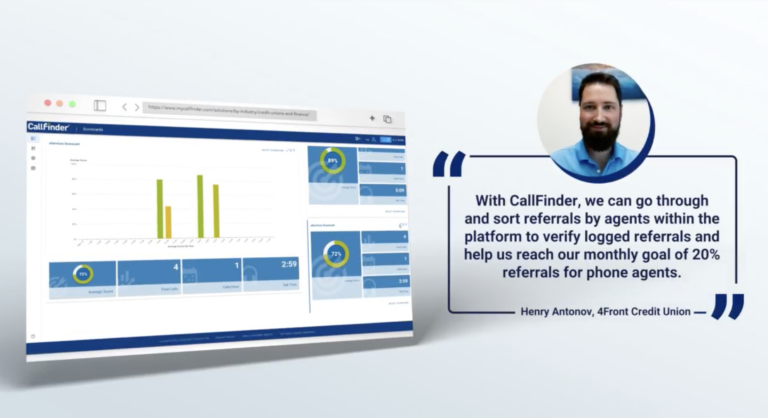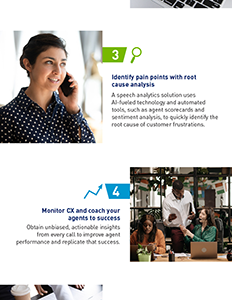As the customer experience continues to become the absolute defining factor in what makes today’s companies successful, there is also the growing question of what actually constitutes an “excellent” customer experience. Although it’s always a good thing, having pleasant and attentive agents and avoiding irate customers is simply not enough, anymore. Customers want their experience to exceed their expectations, and businesses need to be ready to do this each time they receive a phone call. And with today’s available tools, this task is now a whole lot easier.
Stronger Voice of the Customer
Many businesses try to use data garnered from surveys and standard call recording methods to make informed decisions on what their customers are looking for, both now and in the future. However, while this strategy may have worked in the past, it is fundamentally flawed for the modern business. Let’s say a business surveyed 100 people, or listened to 100 recording calls in a month. Sounds good, right? But what if that company was actually receiving over 1,000 calls a month? That means they are basing their decisions on just 10% of what their customers are saying. That’s not even a quarter! So how can this be a true reflection what customers want? Answer: it can’t.
Of course, it would be ridiculous to expect every single customer who calls a business to fill out a survey, or for someone to take the time to listen to each and every recorded phone call. This is where call mining software like speech analytics can help. With speech analytics, businesses can scan thousands of phone conversations for specific words and phrases in just minutes, easily identifying patterns in what their customers are saying. Not only does this provide a far more precise reflection of the voice of the customer, it also gives businesses a much stronger basis for making future decisions on how to provide the best customer experience.

Improved Agent Training Programs
People expect their interactions with contact center agents to be positive, helpful, and accurate. Unfortunately, many customers are finding this to not be the case. Customers often feel agents are ill-equipped to answer their questions. Even worse, they often convey an air of apathy for the customer’s dilemma. But it’s not always their fault. While most companies provide rigorous training when agents are first hired, that training all but ends once agents officially start taking calls. As a result, agents can find themselves at a loss when dealing with customers or situations not necessarily covered in the training manual. This can lead to agents becoming stressed, which effects their interactions with the customers.
But agent training doesn’t have to end with that first phone call. With speech analytics, training can (and should be) an ongoing process. Supervisors can utilize speech analytics to gain a better understanding of the dealings between their agents and their customers. They can then use this information to help agents have a solid understanding of where their strengths lie, where they can improve, and how to better handle certain circumstances they may come up against. As a result, agents become more confident in their abilities, which can be seen in their vastly improved customer interactions.

While some companies may find providing an exceptional customer experience to be rather elusive, those who implement tools such as speech analytics are able to attain it far more easily. By listening and reacting to what customers are truly looking for in a company, any business can take their experience from “fine” to “fantastic”.





